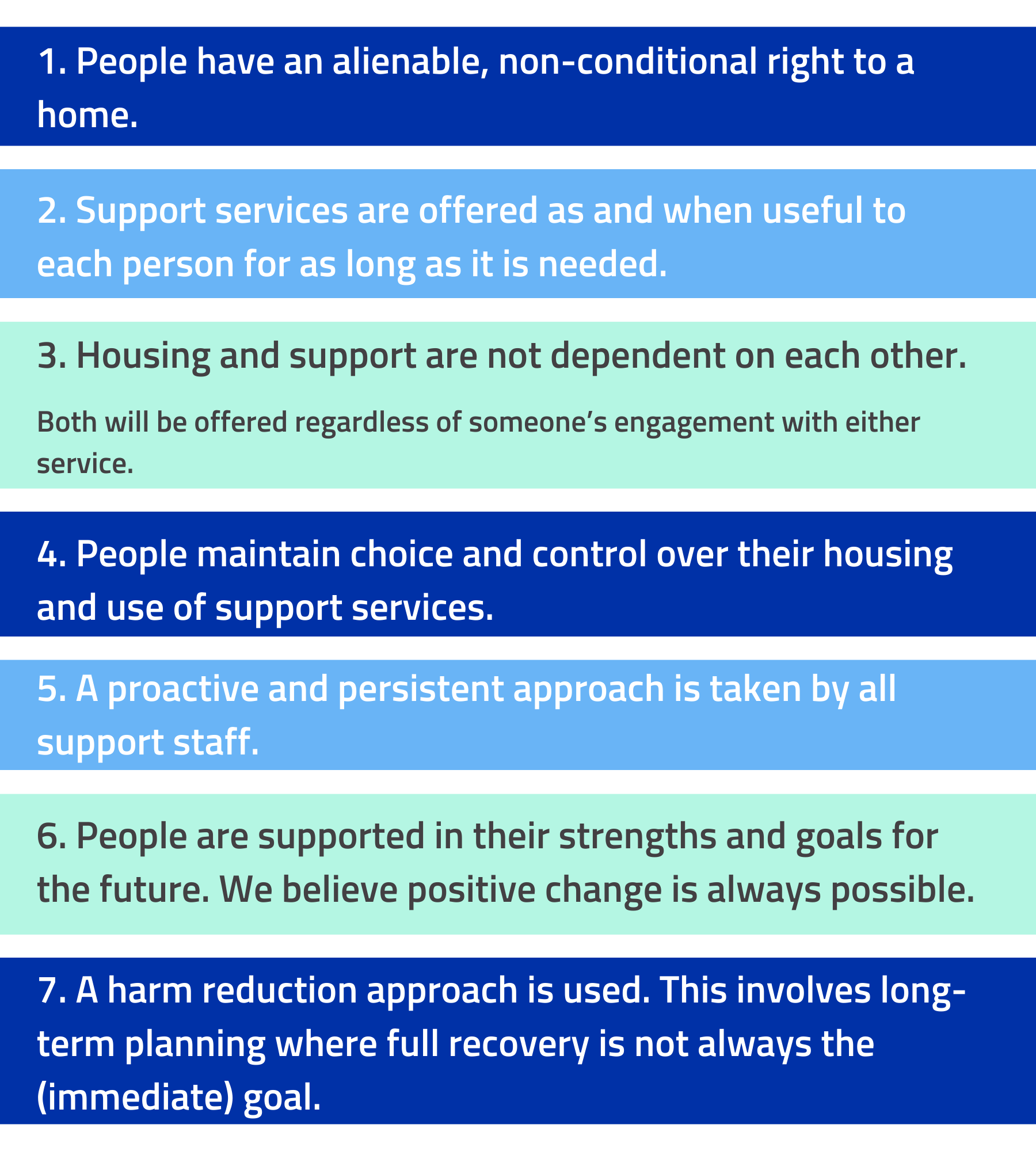Seen by many as the solution to homelessness, Housing First almost seems too good to be true.
Can it really end homelessness for good?
What is Housing First?
Housing First is an approach to ending homelessness that offers stable and permanent housing to people facing homelessness without judgement or preconditions.
Simply put, the housing comes ‘first’ and is maintained regardless of any other challenges a person may face.
Comprehensive support is offered as part of this, meaning people can stay in a safe space while being supported in their mental, emotional and physical recovery from rough sleeping.
This approach ensures that everyone has a home rather than expecting people to overcome challenges, like unhealthy coping behaviours, alone on the streets before a space is offered.
This is important for two reasons:
By removing these barriers, people facing homelessness are put in control of their own housing situation.
For example, 73% of the people we support report use substances every single day. Anyone would struggle to stop using these substances once they have an addiction, but the added pressure of not having a stable home and limited access to support can make recovery impossible.
This can create a vicious cycle where you cannot recover without a home but can’t access a home without recovering first.
A Housing First approach would prevent this.
What does this involve?
There is no ‘one approach’ to Housing First support. It’s designed to meet each person’s unique needs, rather than requiring them to fit into the types of support being offered.
Still, there are seven principles all Housing First projects should follow to be successful:

(provided by HomelessLink)
Can Housing First end homelessness?
Housing First was first trialed in the USA.
More recently, it has been used by the Finnish government and was credited as a key factor in ending homelessness within Finland.
But can the same success be seen in the UK?
Housing First has been in the UK since 2010. 13 years on homelessness has become a growing problem, not a shrinking one.
But Housing First has proved to be highly effective where it has been used.
Pilot studies in Liverpool, Manchester and the Midlands found an average of 88% of people stayed in the housing they were provided.
These groups also greatly benefited from the support services offered to them, having improved mental health and decreased dependence on substances.
Overall, Housing First projects, in the UK and beyond, have resulted in reduced homelessness and increased quality of life.
It’s also lowered healthcare costs, suggesting its an economically worthwhile investment, not just a moral one.
How does Housing First influence our work?
Recently, we launched a specialist women-only accommodation in South London, which provides 16 self-contained flats for women who have slept rough and have complex support needs. Here, wraparound support is provided by a 24/7 team who are specialists in providing gender and trauma-informed support.
We also have plans to increase this provision as part of our 18 Keys project. Every aspect of the 18 Keys project has been designed to support women to find the time, space and support they need to recover and become independent again.
We hope this will act as a blueprint for future Housing First approaches to supporting women and other vulnerable groups sleeping rough.
If you’d like to learn more the 18 Keys Project, please tap here.

